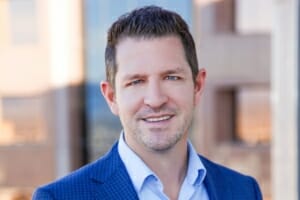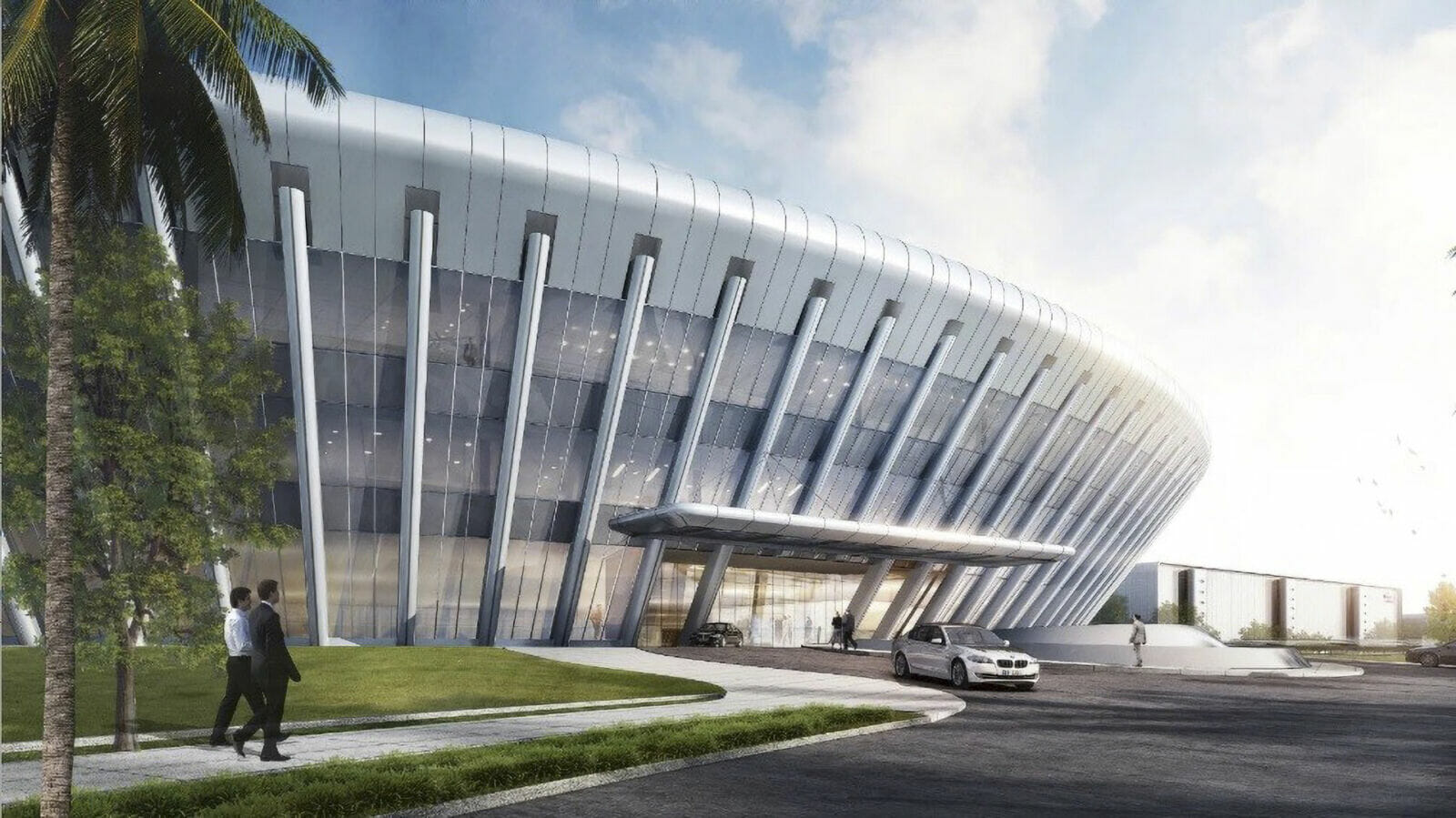After the pain of the Great Recession, Arizona resolved to reinvent and diversify its industrial landscape to create a more resilient economy and put itself on the path to becoming a Tier 1 market. No single person or entity can take sole credit for this shift in priorities; it was made possible through the partnerships between municipalities, economic developers, lawmakers, educators and the taxpayers.
But Chris Camacho, president and CEO of Greater Phoenix Economic Council (GPEC), is among the group of leaders responsible for the ink drying on multi-billion-dollar investments from businesses such as Taiwan Semiconductor Manufacturing Company (TSMC) and LG Energy Solutions.
Az Business magazine sat down with Camacho to talk about the region’s economic transformation, Arizona’s pro-business climate and his thoughts regarding 2023. The following responses have been edited for length and clarity.
Az Business: Let’s start with 2022. What’s one of your top line takeaways from last year?
Chris Camacho: We’re still in this supercycle where we’re seeing global companies in advanced technologies — whether that’s semiconductors, battery and energy storage, electric vehicles (EVs) or even data centers — expanding in the U.S. at unparalleled levels.
READ ALSO: Here are the Ranking Arizona Top 10 lists for 2022
AB: How long has Arizona been in this supercycle?
CC: For about the past five to six years. Fortunately for us as a market, what these industries care about is quality, redundant infrastructure and strong labor pools that continue to produce labor. We also have the tailwinds of continued population growth and a pro-business policy environment.
When you put all those things together, that’s why we’ve seen success with EVs, with LG Energy going down to Queen Creek, or with TSMC and all the supply chain that’s followed. A lot of the leaders that I talk to nationally are saying this is still going to continue for the next five years. We’re very well situated for this industrial technology renaissance.
AB: You mentioned that Arizona has a pro-business climate. That phrase is thrown around a lot, but what does it mean to you?

CC: It starts with a can-do attitude from state, county and local officials throughout the process a company goes through to activate in our market, whether they’re going to the Arizona Corporation Commission to obtain a business license or working with a city for a permit.
You’d be amazed at the value of having a mayor, a council, and planning development services staff member showing up at a meeting and being problem solvers — that goes a long way. The flipside of this would be an attitude of “I’m going to make it very difficult for you to obtain a permit and work through our process.”
AB: What about tax policy? How does that factor into being a business-friendly state?
CC: As industry shifts to more capital-intensive goods producing enterprises, companies care more about certain taxes than others. I want there to be balance across the regulatory and the tax environment to make sure we’re competitive. But we also need revenue collections to invest in core infrastructure, whether that’s people infrastructure or physical infrastructure.
Being pro-business in my mind is understanding which taxes matter and really priding ourselves on being expeditious in our permit process. I would argue we’ve put ourselves in a position to be very competitive for capital-intensive industry. And we need to keep our foot on the pedal to make sure we continue cultivating the new base industry investments that are evolving here.
AB: Speaking of taxes — why do some companies that choose to locate or expand in Arizona receive tax credits?
CC: I would love it if the federal government said no more incentives, but even then, we’d have to compete with foreign nations. These companies have the option to go virtually anywhere they want to in the world. Incentives play a role when you’re targeting a certain type of industry and job that you want to recruit to your community or help grow in your community.
I wish incentives didn’t have to exist, but they do. And if you don’t have any tools, you’re not going to win some of these big projects that are going to provide very significant indirect benefit as well. TSMC is going to affect your neighboring homebuilder, janitorial service and retailer. That creates a significant amount of indirect impacts that well exceed the value of the benefit we’re providing.
AB: How should taxpayers think about these incentives? Are they blank-check handouts for big corporations?
CC: Some of the states we compete with are even more conservative than Arizona and have cash grants. They’ll give money up front to lure a company to their state, and sometimes it doesn’t build out as planned. What I like about our program is that it’s very targeted at certain industries, meaning we want the large catalyst projects that are going to create high wage jobs.
For example, the Qualified Facilities Tax Credit is performance based and scales with the company’s investment. A $20,000 tax credit per job sounds very rich, but when you’re talking about the capital-intensive nature of these investments, the state and localities are going to get a return on that every time. As the company phases up, we’re never going to be left providing more incentives than what the direct benefit was of the company coming to the state.
AB: What’re your thoughts about 2023?
CC: I think nationally we’re going to go through a reset in 2023, in large part because the Federal Reserve is determined to get inflation under control. We’re seeing a lot of Fed activity reversing the trend of what occurred for arguably the last decade, which was low interest rates and easy access to capital. They’re tightening that quickly and that will induce the capital and debt markets to shift where I think a lot of capital liquidity is going to be put on pause. The Fed won’t stop rate increases until we get inflation down under 4%. That has a thawing effect on the U.S. economy.
AB: Does that portend a recession?
CC: For the national economy, I do believe that’s going to mean a slowdown in 2023, but it’ll be short lived. The corporate confidence in the overarching employment levels have not dropped commensurate with the rate increases. The national employment picture still looks positive right now. What’s going to happen is there will be certain markets that shine exponentially more than others. I’d argue we’re in that category.
AB: So, you’re saying Arizona won’t be as affected by a slowdown compared to other states?
CC: I don’t think we’ll be fully immune to some of the effects. We’re a top three industrial market in the U.S. right now. I do think that level of activity continues through 2023 and into 2024, so I’m optimistic about all of that. But I do think this cost reset, driven by a tightening debt market, is going to put a bit of pause on the acceleration that we’ve seen for a decade.
AB: Is Greater Phoenix on the way to becoming a Tier 1 market?
CC: I think we’re unequivocally on that path. I can’t wait until my kids get their first jobs in the next 15 years — hopefully in Phoenix — and can look back and say that we all played a small part in what this place has become. We have the chance to be exceptional, and we need to harness that opportunity.




